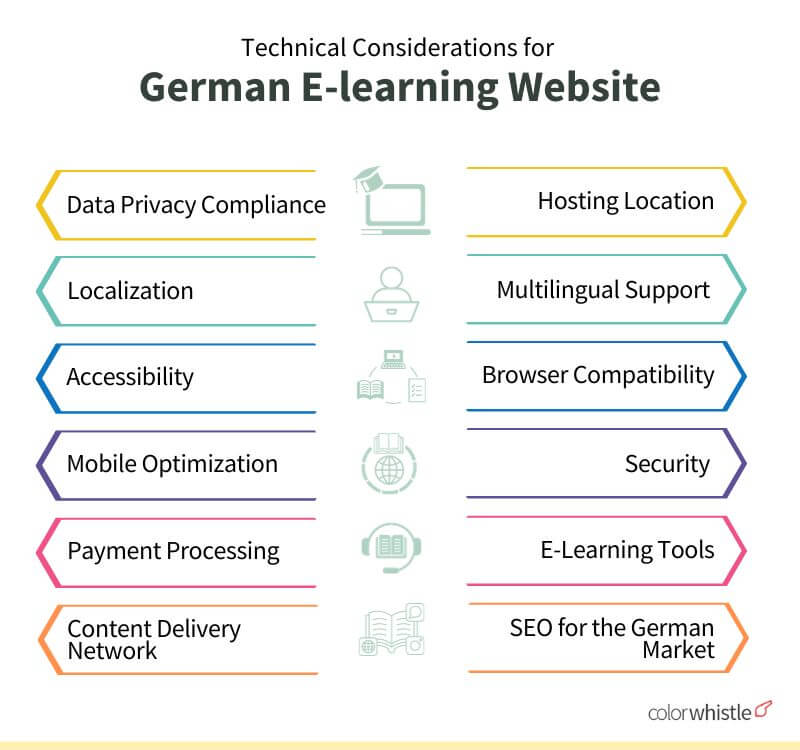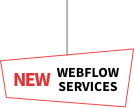Germany is one of the leading markets for e-learning in the world. According to Statista, the revenue in the German e-learning market is estimated to reach €1.3 billion by 2027. This growth is happening because more people want to keep learning throughout their lives, online courses are becoming really popular, and government agencies and educational digital marketing service companies are actively contributing to the expansion of e-learning in the country.
E-Learning Trends in Germany
E-learning websites are continuously evolving to meet the changing needs of learners and educators. Here are some of the key e-learning website trends that have been shaping the industry:
Personalized Learning
E-learning platforms are increasingly using data and AI to deliver personalized learning experiences. Learners receive customized content and recommendations based on their preferences, progress, and learning history.
Microlearning
Short, bite-sized lessons are gaining popularity. Microlearning offers concise and focused content that is easier for learners to digest and integrate into their busy schedules.
Gamification
Gamification elements, such as badges, points, and leaderboards, make learning more engaging and motivate learners to complete courses and activities.
Video Content
High-quality video lessons are being integrated into e-learning platforms. Features like closed captions and searchable transcripts improve accessibility and comprehension.
Interactive Content
Interactive simulations, quizzes, and games enhance engagement and knowledge retention. Learners are actively involved in the learning process.
AI and Machine Learning
AI and machine learning are used to analyze learner data, predict behavior, and offer personalized recommendations, making the learning experience more effective.
Virtual Reality (VR) and Augmented Reality (AR)
VR and AR technologies are being incorporated to create immersive and hands-on learning experiences, particularly in healthcare, engineering, and architecture.
Social Learning
E-learning platforms are integrating social features, allowing learners to collaborate, discuss, and share their progress with peers and instructors.
Learning Analytics
Data analytics tools provide insights into learner behavior and course effectiveness. Educators and administrators can make data-driven decisions to improve courses.
Adaptive Learning
Adaptive learning systems adjust the difficulty and pace of content based on a learner’s progress, ensuring a more customized learning experience.
Content Partnerships
Collaboration with educational institutions and content providers enhances the credibility and variety of courses available on e-learning platforms.
Accessibility and Inclusivity
E-learning websites are designed to be accessible to all, including individuals with disabilities. Features like screen readers, keyboard navigation, and alt text for images are being prioritized.
Certification and Credentialing
E-learning providers increasingly offer courses and programs that lead to certifications, degrees, or badges, providing tangible benefits to learners.
AI Chatbots and Virtual Assistants
Chatbots and virtual assistants provide instant support to learners, answering questions, offering guidance, and facilitating a more interactive learning experience.
Green E-Learning
Sustainability and reducing the environmental impact of e-learning are becoming important. Practices like using renewable energy and minimizing paper usage are gaining traction.
Blockchain for Credential Verification
Blockchain technology is being used for secure and verifiable credential verification, ensuring the authenticity of certificates and degrees earned through e-learning.
Continuous Learning and Upskilling
E-learning platforms are offering courses that cater to professionals seeking continuous learning and upskilling opportunities to advance their careers.
Quality Assurance
Ensuring the quality of e-learning content is crucial. Many platforms are implementing quality assurance standards and seeking accreditation for their courses.
Open Educational Resources (OER)
Open educational resources are gaining popularity as a way to provide affordable and accessible learning materials, contributing to the open education movement.
Mobile Responsiveness
With the proliferation of smartphones and tablets, e-learning websites must be fully responsive to provide a seamless learning experience on various devices and screen sizes.
Did you know?
The rise of HTML5 as the primary programming language for content creation is a significant trend in both the German and the global academic e-learning markets.
Also Read
Technical Considerations for Website Developers to Keep in Mind While Creating a German E-learning Website
Data Privacy Compliance
Germany has stringent data protection laws, most notably the General Data Protection Regulation (GDPR). Developers must prioritize user data privacy and ensure that the website complies with GDPR regulations. This includes obtaining clear user consent for data processing, secure data storage, and providing clear privacy policies.
Localization
To supply to the German audience effectively, ensure that the website is fully localized. This involves translating all content into German, using proper date and time formats, and offering a currency option that supports the Euro.
Accessibility
Make the website accessible to all users, including those with disabilities. Follow WCAG (Web Content Accessibility Guidelines) to ensure that content can be easily navigated and understood by people with various impairments.
Mobile Optimization
Germans often access websites using mobile devices. Ensure that the e-learning platform is fully responsive and offers a seamless experience on smartphones and tablets.
Payment Processing
If your website offers paid courses or subscriptions, integrate secure and widely accepted payment gateways that are trusted in Germany. This will enhance user trust and make transactions convenient.
Content Delivery Network (CDN)
To ensure fast loading times for users across Germany, consider using a CDN to distribute content and resources efficiently. This helps reduce latency and improve website performance.
Hosting Location
Choose a hosting provider with servers located in or near Germany. This can help improve website speed and comply with data residency regulations.
Multilingual Support
If you plan to cater to a diverse audience within Germany, provide multilingual support, allowing users to choose between various languages or dialects.
Browser Compatibility
Test the website thoroughly on popular web browsers used in Germany, such as Chrome, Firefox, and Safari, to ensure a consistent user experience.
Security
Prioritize website security by implementing SSL certificates, using strong encryption protocols, and regularly updating and patching software to protect against cyber threats.
E-Learning Tools
Depending on the type of e-learning content you offer, consider integrating learning management systems (LMS), video conferencing tools, and interactive content authoring tools that align with German e-learning standards.
SEO for the German Market
Optimize the website for search engines with relevant German keywords and follow SEO best practices to ensure visibility in local search results.

Also Read
Wrap UP
The e-learning landscape in Germany is rapidly changing. Key trends like personalized learning, mobile optimization, and the integration of emerging technologies are shaping the future of online education. To succeed, website developers and entrepreneurs need to adapt to recent trends and understand the regulatory and privacy aspects in Germany. By doing so with a skilled education website development services agency, they can build innovative e-learning solutions that make a significant impact on education and professional development in the country.
Browse through our ColorWhistle page for more related content and to learn about our services. To get in touch with us and learn more about our services, please visit our Contact Us page.
What’s Next?
Now that you’ve had the chance to explore our blog, it’s time to take the next step and see what opportunities await!





